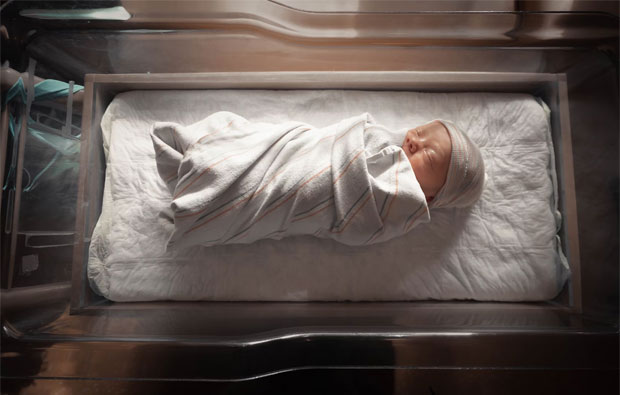Protecting Newborns: Navigating Healthcare for Your Baby and Understanding the Risks of Medical Negligence

Protecting Newborns: Navigating Healthcare for Your Baby and Understanding the Risks of Medical Negligence
As a parent, understanding the healthcare system during pregnancy, birth and the newborn period is just another issue to get your head around. In the UK, services are usually provided by the NHS, which offers comprehensive care for infants, but can also be carried out by private providers.
As well as support leading up to and during birth, this care should include:
- A detailed physical examination checks for any immediate health concern within the first few hours of birth
- Routine checks scheduled at specific intervals, including the six-to-eight-week review, focusing on developmental milestones and general health.
- A vaccination schedule, starting at eight weeks old. These are crucial for safeguarding your baby’s health.
Consistent appointments with your midwives, health visitor or GP are essential for monitoring your baby’s growth and development, addressing concerns, and getting professional advice.
As a parent, your observations and instincts are invaluable. Always communicate any concerns or unusual observations about your baby’s health to your healthcare provider. Unfortunately, mistakes by medical staff do occur, and at this important stage, they can have serious repercussions for you and your child.
In the following guide, we explore the meaning of clinical negligence, how it relates to healthcare for you or your baby, and what you should do if you think you or someone you love has been affected by it.
Timely intervention in case of health issues and prompt responses to your concerns are essential. This responsiveness ensures that your baby’s health needs are met promptly and effectively.
There are also red flags that you should be aware of. If your concerns are consistently dismissed or not taken seriously, it may indicate a lack of proper care and attention. Negligence in follow-up appointments or delays in essential healthcare interventions should not be ignored. Trusting your instincts is important. If something feels wrong, it is always better to seek medical advice.
Keeping a detailed record of your baby’s health, including growth milestones, vaccinations, and any illnesses or treatments, can help when you are reporting concerns to your healthcare providers.

Understanding Medical Negligence in Newborn Care
Medical negligence occurs when the care provided by healthcare professionals falls below the accepted standard, leading to harm or injury. In the context of newborn care, medical negligence can take various forms. Misdiagnosis or delayed diagnosis of a condition in a newborn can lead to inappropriate or delayed treatment, potentially causing long-term harm. Improper treatment, whether due to incorrect medication, incorrect dosages, or inappropriate medical procedures, also falls under this category. Negligence can also be in the form of inadequate monitoring during and after birth, which can lead to complications being missed.
The consequences of medical negligence extend beyond the immediate physical impact on the child. There is often a significant emotional and psychological toll on the family. Parents might experience stress, anxiety, and a loss of trust in the healthcare system. For the child, the implications can be long-term, potentially affecting their development and quality of life.
What to Do After Experiencing Negligence
If you suspect that your baby has been a victim of medical negligence, there are some steps to take within and outside of the medical system:
- Keep detailed records of all medical appointments, treatments, and communications regarding your baby’s health
- Seek a second opinion from another healthcare professional
- Inform your current healthcare provider of your concerns. If the response is unsatisfactory, you can escalate the matter to higher authorities within the NHS or relevant healthcare bodies
During or after experiencing negligence, connecting with support groups can provide emotional support and practical advice from other parents who have experienced similar situations. For professional mental health support, counselling services can be invaluable for dealing with the stress and emotional turmoil that can arise from dealing with medical negligence cases.
You should also consider consulting a solicitor specialising in medical negligence to understand your legal rights and options. An expert in newborn care and birth injury negligence can help by assessing your situation and guiding you through the process of taking legal action.

The Medical Negligence Claims Process
If you are facing a situation where medical negligence has affected your newborn, understanding the legal process for claiming compensation in the UK is important. This knowledge can empower you to take the necessary steps to seek justice and compensation for any harm caused. Here is a general overview of the legal process involved:
- Initial consultation: consult a solicitor who specialises in medical negligence. They can provide expert advice on the strength of your case and the likelihood of a successful claim. This is usually done during a meeting or a phone call with your solicitor to discuss the details of the case and understand the legal process.
- Gathering evidence: your solicitor will help you gather necessary evidence, which may include medical records, expert opinions, and witness statements.
- Building the case : once the evidence is gathered, your solicitor will build a case on your behalf. This involves notifying the healthcare provider or their legal team of the allegations of negligence.
- Negotiations and settlement: most medical negligence cases are settled out of court. Your solicitor will negotiate with the healthcare provider’s legal team to reach a settlement that compensates for the harm caused.
- Court proceedings (where necessary): in the rare event that your case goes to court, your legal team will represent you throughout the hearings, presenting your evidence on your behalf to fight for the compensation you or your child needs
Compensation is important for a few reasons: the main reason being that it can cover any costs you have incurred or may incur in the future due to the negligence. Compensation for birth injuries is also offered as financial recompense for the physical and emotional impacts of the negligence, meaning the more severe your situation, the more compensation you may be able to claim. On top of this, taking legal action holds those responsible for your family’s suffering to account, meaning they are less likely to do it again in the future, helping to protect other families who go through the same system.
If you find yourself dealing with medical negligence, make sure to take the steps outlined above, and seek advice from qualified professionals so you can get the support and legal redress you need.
Guest Article.





